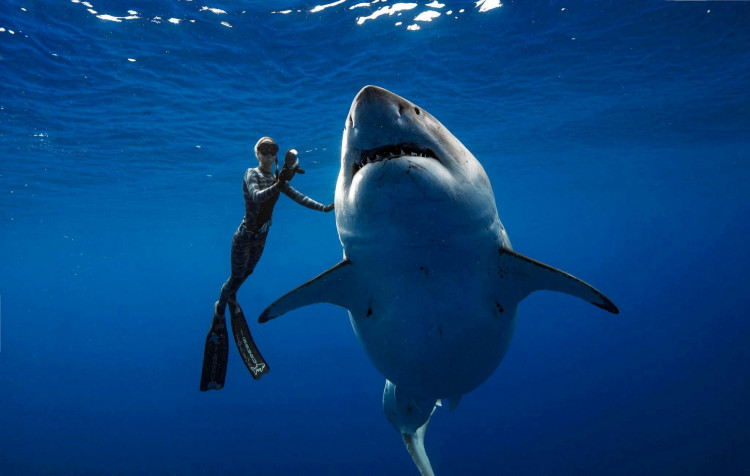Scientists have noted that great white sharks have become incredibly rare off the coast of South Africa, where they often cluster, since 2017. At first, human activity, such as overfishing, was held responsible for the mysterious disappearance.
But detailed research has proven that a pair of orcas are pursuing the sharks for their livers.
Several of the great white sharks that have washed up at Gansbaai on the South African coast since 2017 have missing livers (and some have even lost their hearts), which is a telltale sign of an orca attack.
The same pair of orcas are believed to be responsible for the unusual wounds on these sharks. Scientists think that the two are probably to blame for many more great white deaths that haven't washed ashore.
"Initially, following an orca attack in Gansbaai, individual great white sharks did not appear for weeks or months," marine biologist Alison Towner of the Dyer Island Conservation Trust explained.
"What we seem to be witnessing though is a large-scale avoidance (rather than a fine-scale) strategy, mirroring what we see used by wild dogs in the Serengeti in Tanzania, in response to increased lion presence. The more the orcas frequent these sites, the longer the great white sharks stay away."
The scientists tracked 14 GPS-tagged sharks as they departed the region when orcas were there over the course of five years. Sightings of great white sharks are also much lower in numerous bays.
In the absence of great white sharks, copper sharks are filling the ecological void. Great white sharks prey on these sharks; when there are no great whites around, orcas pursue the coppers instead.
"However, balance is crucial in marine ecosystems, for example, with no great white sharks restricting Cape fur seal behavior, the seals can predate on critically endangered African penguins, or compete for the small pelagic fish they eat," Towner said.
"That's a top-down impact, we also have 'bottom up' trophic pressures from extensive removal of abalone, which graze the kelp forests these species are all connected through."
It's important to take into account the potential motivations behind orcas' shark killing. Huge, plump, and full of fats and oil, their livers are excellent sources of nutrients that the sharks need to power their long migration routes across the ocean.
However, it's unclear how the orcas came to this conclusion or why they might choose shark livers as a food source.
The team's research has been published in the African Journal of Marine Science.





